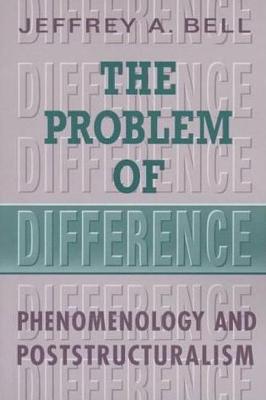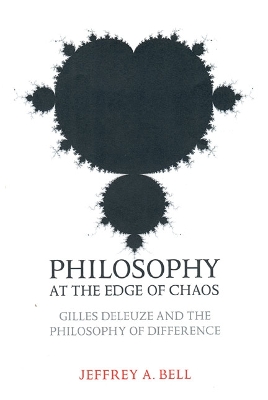Toronto Studies in Philosophy
2 total works
Beginning with Plato and Aristotle, philosophers throughout history have built their theories around the problem of reconciling a fundamental distinction, as for example, Plato's distinction between knowledge (reality) and opinion (appearance), Descarte's mind/body distinction, and Kant's a priori/a posteriori distinction. This 'problem of difference' is a classic theme in philosophy, and one that has taken especially intriguing turns in recent decades. Jeffrey A. Bell here presents a finely constructed survey of the contemporary continental philosophers, focusing on how they have dealt with the problem of difference. Bell's work centres around three key figures - Husserl, Merleau-Ponty, and Deleuze. He also considers the positions of such thinkers as Foucault, Derrida, and Rorty, who have called for an end to the traditional response to the problem of difference - an end to the search for any ultimate foundations on which our varied and different experiences of the world might be based - and thus, in effect, an end to traditional philosophy.
In clarifying the relationship between phenomenology and poststructuralism, Bell analyses the role of paradox in both traditions, in particular the role it plays in accounting for difference. Not only philosophers, but also teachers and students in the area of comparative literary they will benefit from this book.
In clarifying the relationship between phenomenology and poststructuralism, Bell analyses the role of paradox in both traditions, in particular the role it plays in accounting for difference. Not only philosophers, but also teachers and students in the area of comparative literary they will benefit from this book.
From the early 1960s until his death, French philosopher Gilles Deleuze (1925-1995) wrote many influential works on philosophy, literature, film, and fine art. One of Deleuze's main philosophical projects was a systematic inversion of the traditional relationship between identity and difference. This Deleuzian philosophy of difference is the subject of Jeffrey A. Bell's Philosophy at the Edge of Chaos. Bell argues that Deleuze's efforts to develop a philosophy of difference are best understood by exploring both Deleuze's claim to be a Spinozist, and Nietzsche's claim to have found in Spinoza an important precursor. Beginning with an analysis of these claims, Bell shows how Deleuze extends and transforms concepts at work in Spinoza and Nietzsche to produce a philosophy of difference that promotes and, in fact, exemplifies the notions of dynamic systems and complexity theory. With these concepts at work, Deleuze constructs a philosophical approach that avoids many of the difficulties that linger in other attempts to think about difference.
Bell uses close readings of Plato, Aristotle, Spinoza, Nietzsche, Heidegger, Derrida, and Whitehead to illustrate how Deleuze's philosophy is successful in this regard and to demonstrate the importance of the historical tradition for Deleuze. Far from being a philosopher who turns his back on what is taken to be a mistaken metaphysical tradition, Bell argues that Deleuze is best understood as a thinker who endeavoured to continue the work of traditional metaphysics and philosophy.
Bell uses close readings of Plato, Aristotle, Spinoza, Nietzsche, Heidegger, Derrida, and Whitehead to illustrate how Deleuze's philosophy is successful in this regard and to demonstrate the importance of the historical tradition for Deleuze. Far from being a philosopher who turns his back on what is taken to be a mistaken metaphysical tradition, Bell argues that Deleuze is best understood as a thinker who endeavoured to continue the work of traditional metaphysics and philosophy.

